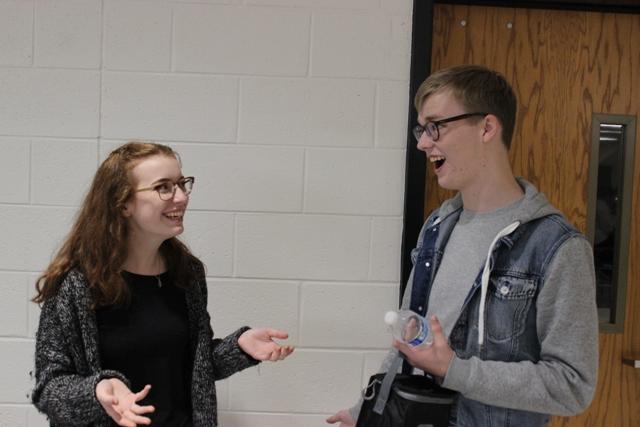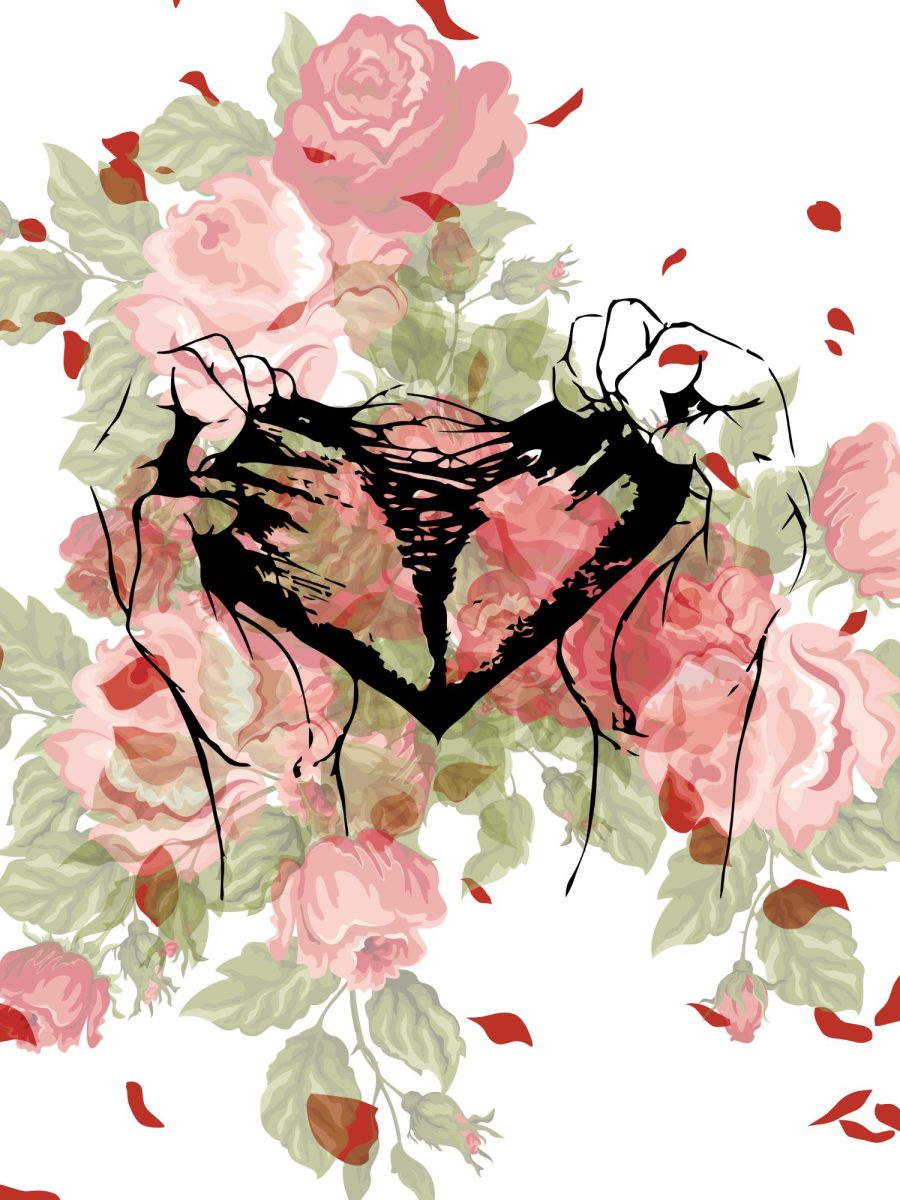Ode to Wild
Junior Sophie Bier (left) tells peer Noah Smith (right) an intense story in which she uses the word “wild” to describe the situation. The adjective wild is an extremely useful word that is often overlooked and not given credit for its value.
January 25, 2017
Out of all of the adjectives available in the vast English language, there are a plethora that are exceptionally overused. Fun. Great. Bad. Good. All are examples of words that need to be pushed aside and replaced with better, more effective words. But not just any word; no, there is one word in particular that is arguably the best and most versatile adjective that people of the 21st century have the privilege to have access to: Wild.
The Oxford Dictionary definition of wild is “uncivilized or not domesticated”, along with about six other definitions. Despite the denotation, the word can be used practically anywhere to emphasize and enhance conversations. It adds a cliffhanger to almost any sentence, leaving listeners to question what was wild or how it was wild.
When beginning a story with “it was wild”, it can mean one of a few things. One, whatever took place was awful and a crazy tale is about to be told, or two, it was amazing and the audience is going to wish they were there. Either way, the story is going to be interesting.
It does not just end at wild though; another extremely useful version of the adjective that is commonly used is the phrase “wildin’”. This descriptor has recently gained popularity on social media sites such as Twitter and Tumblr, although this rendition of the term is used primarily to describe a person or thing that is being or acting wildly.
Next time that you are at a loss for words to describe a situation or if something insane happens and there is no accurate way to retell the event, consider wild as a go-to adjective. The overall flexibility and versatility of the word is sure to spice up a conversation and add an element of fun to a story.




